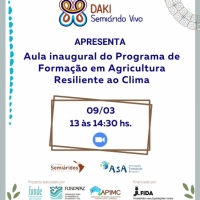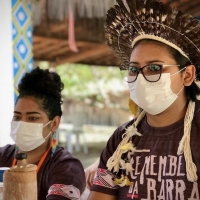News
Project supported by Aksaam launches pioneering software to improve participatory organic certification of farming families
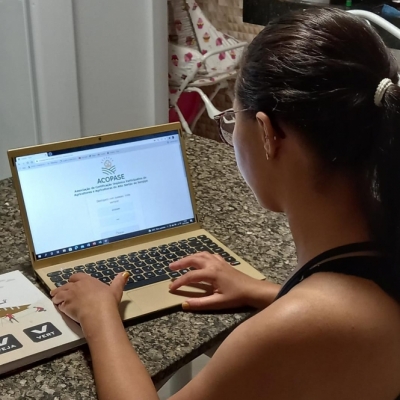
Family farming and technology now go hand in hand in the Rural Associations for Participatory Organic Certification in the Alto Sertão do Sergipe and in the Semi-Arid Region of Piauí. This is because the creation of a pioneering technological tool in the country seeks to enable the improvement of the organic quality control process in the productive family units, from the functioning of the SPGs/OPACs in the generation of the Brazilian organic seal, in order to allow the sale of products in fairs, supermarkets, stores, restaurants, hotels, industries, internet and others. s
The software is an initiative of the Cotton Project in Agroecological Consortia, coordinated by Diaconia, in partnership with the Ecovida Agroecology Network and the AKSAAM/UFV/IPPDS/FUNARBE Project, which is financed by the International Fund for Agricultural Development (IFAD) – Organization of United Nations (UN). “The entire system is monitored by the ethics and evaluation committees. At the end of the year, a general meeting takes place and this software, based on the mandatory documents for the SPGs, gives the possibility that the family linked to the OPAC is able or not to receive the Certificate of Organic Conformity. It is a huge advance in knowledge management that will help in the management of information, registration and storage of all participatory organic certification documentation, which is fundamental for organic quality control in productive family units”, explains Fábio Santiago, coordinator of the Project. Cotton in Agroecological Consortia by Diaconia. Furthermore, it will serve the other SPGs/OPACs supported by the Project.
In addition to monitoring and making suggestions for improving the software, the AKSAAM/FIDA/UFV/IPPDS/FUNARBE team, in partnership with Projeto Algodão, aims to improve access to technologies for farming families in the semiarid region. According to the coordinator of AKSAAM, Professor Marcelo Braga, “the software will contribute to the organization and planning of agroecological cotton production, ensuring the productive insertion of farmers in the value chain. It is a support system in the management of information for participatory organic certification of agroecological cotton”, he says.
For the IFAD program officer in Brazil, Hardi Vieira, “it is a pleasure to be able to work with Diaconia, through the partnership with AKSSAM/FIDA/UFV/IPPDS/FUNARBE and this initiative that reinforces the importance of agroecological cotton. in the northeast of Brazil and in the semi-arid region, which is our priority area. We strongly believe in this issue of computerization and the science of technology so that we can advance in innovations and thus make this process continue and be modernized”, he says.
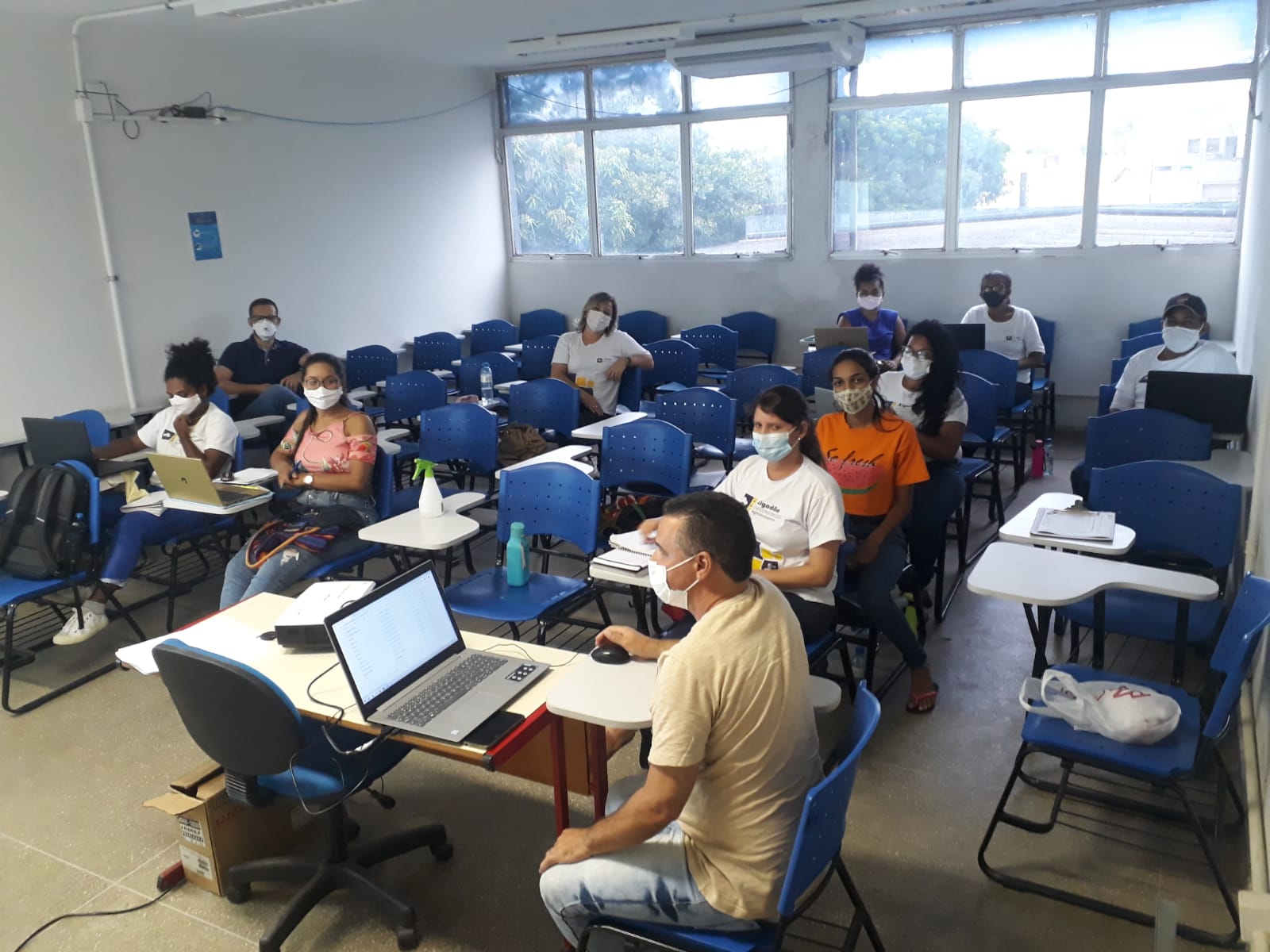
The first steps towards the development of the software are the sensitivity of the Ecovida Agroecology Network, which ten years ago took the initiative in view of the need for technological mechanisms to record rural activities in the south of the country. The coordinator of the ecological center, agronomist and writer, Laércio Meirelles, celebrates the contributions to the certification process of farming families in the states of Rio Grande do Sul, Santa Catarina and Paraná. “Certificates on the Ecovida Network are issued only if the documents are all inserted and approved in the software. So we automated this part of the process”, he says.
In order for food crops to obtain organic compliance, they must be free of synthetic chemical pesticides, in addition to not having synthetic chemical fertilization, transgenics, fire in land preparation and inadequate management of solid waste on the property. Therefore, the process of organizing organic quality control documents, such as the farmers' notebook with reports of daily practices, management plan, production group meeting minutes, follow-up opinions from ethics and evaluation, the organic legislation and the minutes of meetings, started to be digitized and made available with greater transparency.
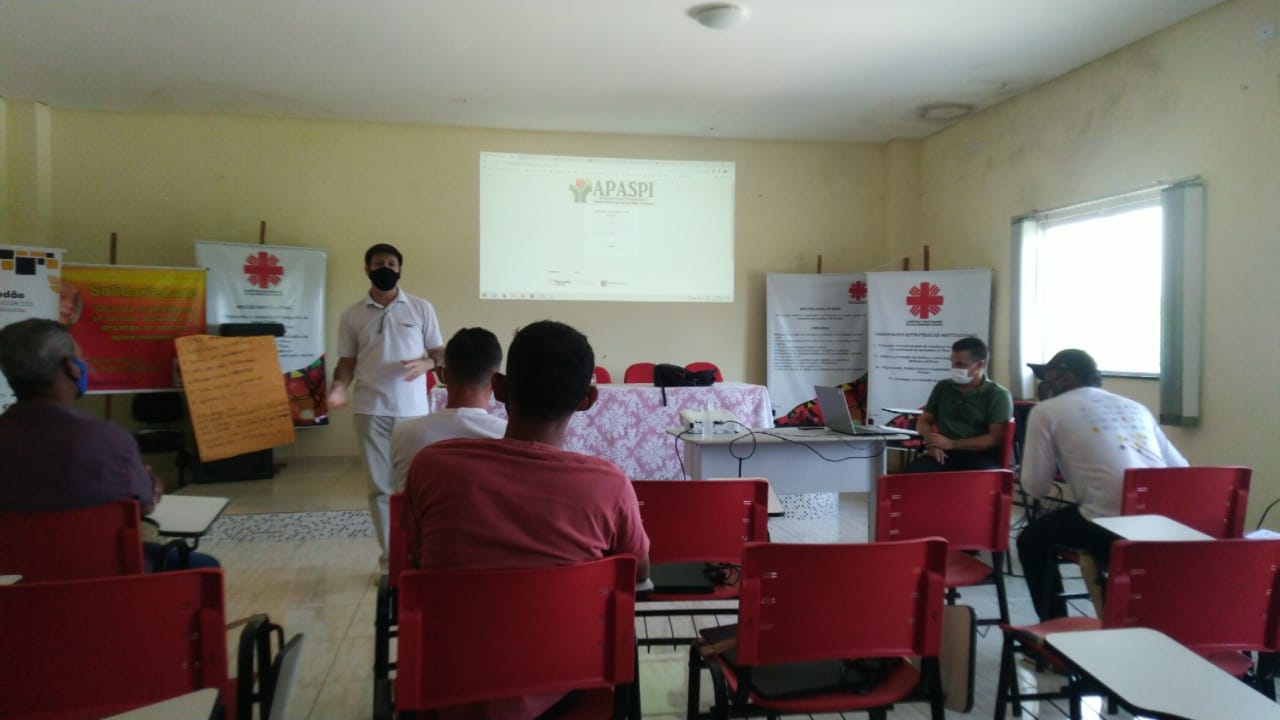
According to the technician of Cáritas Diocesana de São Raimundo Nonato – PI and founding partner of the Association of Agroecological Producers of the Semi-Arid Piauiense (APASPI), Gean Magalhães Bastos, the technological tool has increased the credibility of organizations. “It is a tool that helps more clearly in the follow-up process and ensures more transparency by generating reports and alerts, in case there is any necessary documentation pending. I have no doubt that the software guarantees a more efficient way of working and decentralizing the activities that generate the participatory organic certification process. If the Ministry of Agriculture, Livestock and Supply (MAPA) requests an audit to evaluate the documentation, everything will be recorded in the system”, considers Gean.
According to the president of the Association for Participative Organic Certification of Farmers of Alto Sertão de Sergipe (ACOPASE), the software has helped to reduce the bureaucracy of work in the field and improve the professionalism of the management of OPACs. “The system came to strengthen us and give us autonomy in relation to the organization of tasks, as it helps us register farming families. Soon we will also register the products”. We are putting a lot of faith that it will change a lot in the organization of OPACs”, observes Iva de Jesus.
In addition to strengthening the credibility of the participatory organic certification process, the arrival of the technological system has potentiated the involvement of local youth in the dynamics of agroecological production. An example of this is agronomy student Iara Cleia da Silva (33), who is also the daughter of a farming family and has been mobilizing in her territory to contribute to the autonomy of female farmers in the Alto Sertão Sergipano. “I see it as very important to include youth in these processes. I am particularly happy to help with my knowledge as an agronomic engineering student at the Federal University of Sergipe – Campus Sertão – Nossa Senhora da Glória/SE. Most of the young people are sons and daughters of farming families that are part of this youth and mobilizing project, and this helps to strengthen and empower the farmers”, considers Iara.
According to the technical advisor of the Dom José Brandão de Castro Center (CDJBC), Bayne Ribeiro, the presence of youth is fundamental in the management of participatory organizations. “One of ACOPASE's banners is to increasingly include young people and women in this management process, which increasingly helps any farmer to be close and identify with these tools. And this software will greatly help the management process within the scope of participatory organic certification”, believes Bayne.
Cotton Project in Agroecological Consortia – This is an initiative coordinated by Diaconia, in a strategic partnership with the Federal University of Sergipe (UFS, Campus Sertão – Nossa Senhora da Glória/SE). The Project has financial support from the Laudes Foundation, the Inter-American Foundation (IAF) and FIDA/AKSAAM/UFV/IPPDS/FUNARBE. The Project is also a partner with Projeto + Algodão – FAO/MRE-ABC/Government of Paraguay/IBA. To implement the Project in the territories, Diaconia established partnerships with local NGOs with experience in Agroecology that will be responsible for providing technical advice to strengthen the Participatory Organizations for Organic Conformity Assessment (OPACs) and agroecological production. In Sertão do Piauí, Cáritas Diocesana de São Raimundo Nonato develops activities in Serra da Capivara. In Sertão do Cariri, in Paraíba, the work is being carried out by Arribaçã, in partnership with CEOP – Território do Curimataú/Seridó da Paraíba. In Sertão do Araripe, in Pernambuco, the NGOs CAATINGA and Chapada jointly assumed the actions of the Project. The activities in Alto Sertão de Alagoas and Alto Sertão de Sergipe are in charge of Instituto Palmas and Centro Dom José Brandão de Castro (CDJBC), respectively. In Sertão do Pajeú (PE) and Oeste Potiguar (RN), territories where Diaconia already has offices and activities, it is in charge of implementing the local actions of the Project and in partnership with CPT – RN.
Reporting: Acsa Macena



